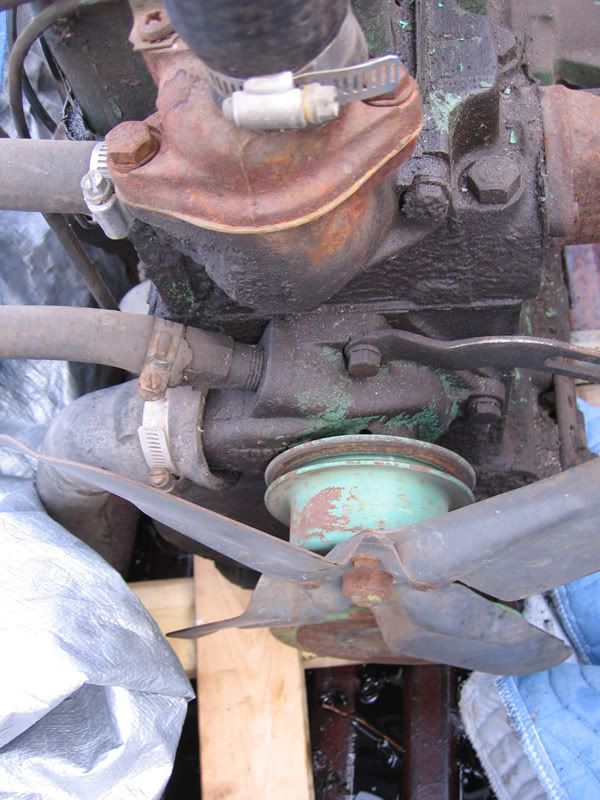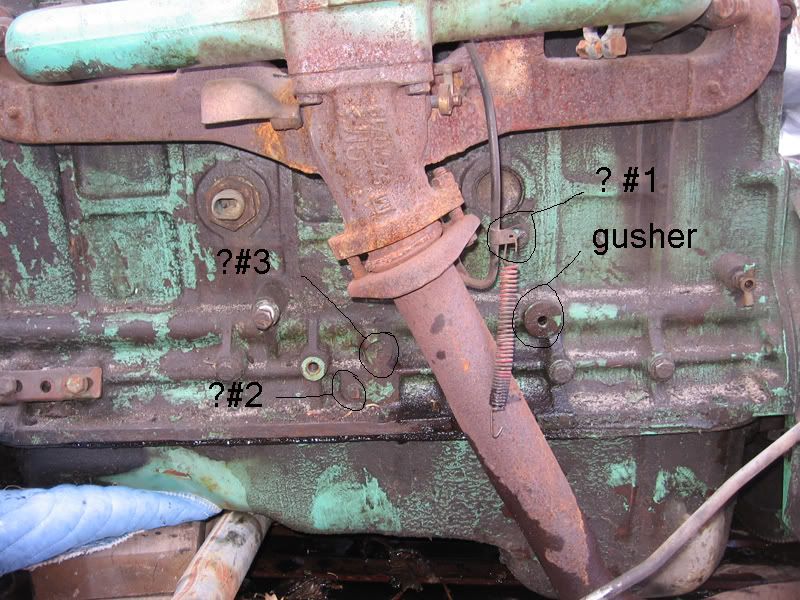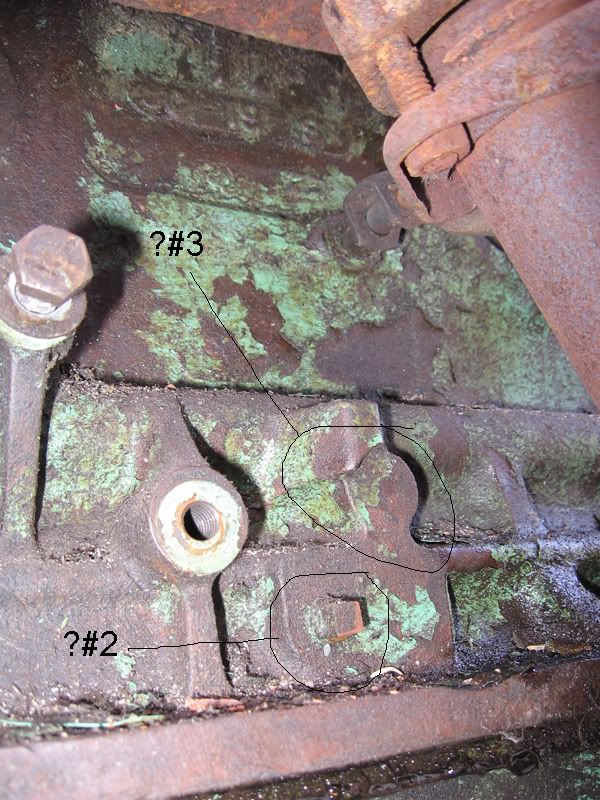Yes, but which Canadian 261? - 04/20/07 03:55 PM
Because they came in both Pontiac and Chevrolet form up here!
My understanding is that the Pontiac 261 is a bypass oiler as a rule. They appear to have come with the "848" head. They can on occasion have taller/embossed valve covers. Sound about right?
But is this the ONLY Canadian 261?
The casting number on my 261 (3759365) tells me it is a '59 and came out of a Chevrolet truck. It has an 848 head. As I have yet to see illustrative pictures of both bypass and pressure oiling systems side by side (and where is this pin?), I can't be sure of what's going on with my engine.
I'd like to figure it out.
FACTS:
-Engine was pulled from a 50 chev 1/2 or 3/4 ton.
Obviously someone swapped it in there at some point.
-it has a front timing-plate mount.
-It didn't come with a filter or lines.
-There is a hole in the (drivers) side of the block that gushed oil when I cranked it over to do a compression test. The lack of paint around the boss of this hole tells me it was either plugged with a bolt and washer or had something over top of it recently.
-there is a second hole down low on the block (nearish the triangular side motor mount IIRC) that has a thread-in type plug in it. This plug looks to have been there for a long time.
-I don't see any pin but I'm probably not looking in the right place.
-I can and will post pictures.
So, is the Canadian truck 261 the same as the US model? Is it more like a Pontiac? When we say "Canadian 261" are we referring to the Pontiac alone or is there a Canadian Chevrolet 261?
My understanding is that the Pontiac 261 is a bypass oiler as a rule. They appear to have come with the "848" head. They can on occasion have taller/embossed valve covers. Sound about right?
But is this the ONLY Canadian 261?
The casting number on my 261 (3759365) tells me it is a '59 and came out of a Chevrolet truck. It has an 848 head. As I have yet to see illustrative pictures of both bypass and pressure oiling systems side by side (and where is this pin?), I can't be sure of what's going on with my engine.
I'd like to figure it out.
FACTS:
-Engine was pulled from a 50 chev 1/2 or 3/4 ton.
Obviously someone swapped it in there at some point.
-it has a front timing-plate mount.
-It didn't come with a filter or lines.
-There is a hole in the (drivers) side of the block that gushed oil when I cranked it over to do a compression test. The lack of paint around the boss of this hole tells me it was either plugged with a bolt and washer or had something over top of it recently.
-there is a second hole down low on the block (nearish the triangular side motor mount IIRC) that has a thread-in type plug in it. This plug looks to have been there for a long time.
-I don't see any pin but I'm probably not looking in the right place.
-I can and will post pictures.
So, is the Canadian truck 261 the same as the US model? Is it more like a Pontiac? When we say "Canadian 261" are we referring to the Pontiac alone or is there a Canadian Chevrolet 261?


